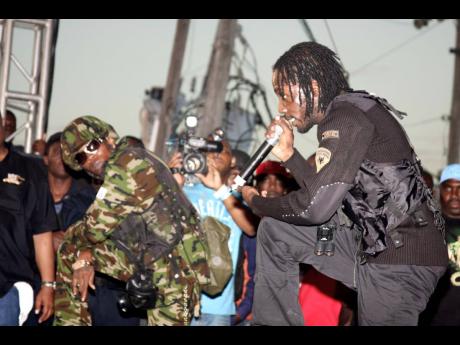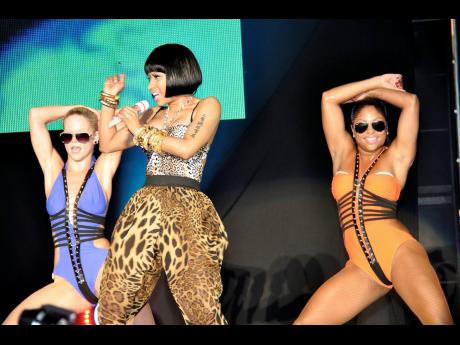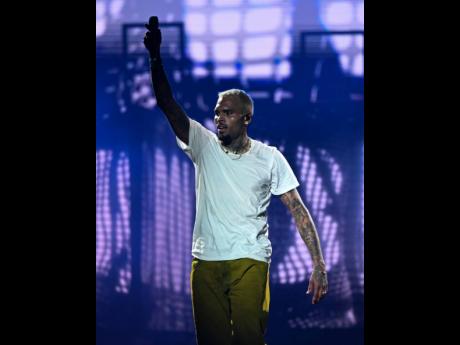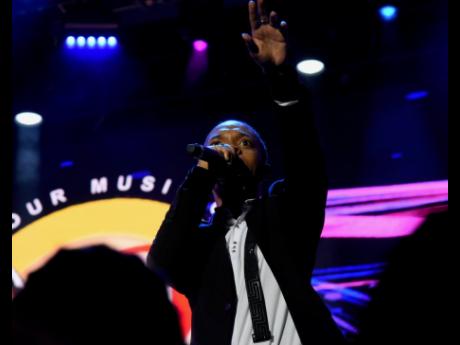What’s the word on bad words?
Now two months after the latest public spectacle surrounding the ‘badword law’, Jamaica has seemingly returned to business as usual.
Under section 9C of the Towns and Communities Act of 1843, it is illegal for any person to use any profane, indecent or obscene language in public spaces. A person convicted of this offence can be fined up to $1,500 or be imprisoned for up to 30 days.
While there has been no shortage of breaches of this section of the Constitution, the latest victim to have the book thrown at them publicly was local dancehall artiste Bayka at the recent staging of Reggae Sumfest where his set was cut short and he was removed from the stage and placed in handcuffs.
Referring to the incident St James, police commander Senior Superintendent Vernon Ellis later said, “If you are coming to Sumfest to break the law, you must come prepared to face the consequences. So if you come to Sumfest to curse bad words, bring your toothbrush and all the other necessaries because you are going to spend some time in jail.”
Comparatively, while there was no shortage of profanity breaches at the heavily policed Chris Brown and Friends concert last Sunday, head of the St Andrew Central Police Division, where the concert took place, Superintendent William Kessler, said no arrests were made.
Like the enforcement of countless other laws, arrests are left up the discretion of the police.
Speaking on her hope to create consistency with the application of the law, author and senior professor of cultural and reggae studies at The University of the West Indies, Mona, Dr Donna Hope, said, in its current usage, dancehall artistes are disproportionately affected by the profanity law.
“We need to decide which public spaces are more at risk and therefore make at least the application of the law seem more fair. That there is some level of social justice at work because I find that people in the dancehall fraternity more than any others have been the ones that have felt the brunt of this law. More than any others we hear about dancehall artistes, so we have some work to do on that. And I hope that Minister Grange will follow through from what happened.”
CHARGED FOR INDECENT LANGUAGE
In January 2009, Vybz Kartel and Mavado were both charged for using indecent language during their now famous clash at Sting 2008. A year prior in February 2008, Vybz Kartel had to answer in court for his arrest at the Amnesia nightclub in Ocho Rios where despite forewarning from the police he repeatedly swore. During his hearing, he said he was celebrating his birthday and was drunk.
In 2005 Sizzla was jailed for 15 days after using indecent language at East Fest. Refusing community service, the artiste was held over the Christmas holidays. Later in 2014, he was arrested again for a similar offence and made to pay the $1,000 fine.
Other famous offenders include Lady Saw, Anthony B, Bounty Killer and Jahvillani.
While the majority of offenders have been local acts, international performers have also faced the consequences. Nicki Minaj was famously charged $1,000 for swearing in her performance at Reggae Sumfest in 2011.
Attributing some of the disparity to Jamaica’s reliance on tourism, high-profile entertainment lawyer Bert Samuels said, “There are a lot of words used in calypso music, where their interpretation is clearly for profanity but the policing of it seems to have calypsonian lyrics off-limits. They don’t trouble calypsonians.”
He continued, “I don’t know if it’s an offshoot of our tolerance for tourists. Jamaica promotes visitors and protects visitors and the Constitution says that nobody should be discriminated against on any grounds. So that’s a constitutional breach for tolerance to be shown to one set of people because of their nationality and another because we are locals. Discrimination in the administration of justice, discrimination based on country of origin, is prohibited by the Constitution and equality before the law is also a constitutional right.”
The Sunday Gleaner contacted the Jamaica Constabulary Force’s head of corporate communications, Senior Superintendent Stephanie Lindsay, for a comment on whether the police treat local and international performers differently under this law, but no answer was received by press time.
Following Reggae Sumfest 2023, Culture Minister Olivia Grange indicated that she believes it was time for the 180-year-old law to be reviewed. Hope says special considerations must be made.
“We have to have that conversation is it only applicable to artistes in dancehall?” she speculated, “because Chris Brown came and do his thing and nobody don’t go up there and lock up Chris Brown and charge him.”
“We need to have some heads going at these laws and looking at how we define profanity, not just in terms of the words that are being used but the context that they are being used and the kind of meaning that we can draw from them because these words have multiple meanings.
Offering similar sentiments Samuels said, “Profanity is a very subjective use of the English language and also of what I call broken African because I don’t call it broken English. There is some amount of poetic licence given to artistes, both formally trained and informally trained in the description of, be it their drawings or their words used.”
He continued, “I think that the bad word question was under colonial law [where] any language used other than the English language was punished. It’s a form of punishing the people who don’t use the language of the enslavers and the language of the colonisers. It is the colonisation of our language and the rejection of the creative language of the people. I think in a liberal society, in an adult audience, there should be less limits on profanity and whatever section 9C is saying, because right away I want to know if the statue at Emancipation Park – is that profanity or is it a work of art?”




